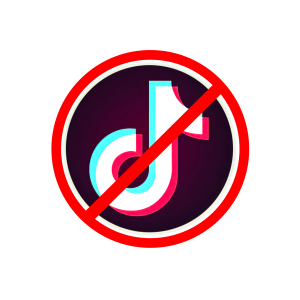Brought to Life
September 17, 2003
Seeing bands live can be a grueling experience. The definition of live also takes on new meanings, as I learned this weekend. When I went to see Evanescence at Avalon on Sunday, September 15, I was surprised by how much the voice of lead singer Amy Lee sounded like it did on the CD. I mentioned it to my friend who, in turn, was surprised that she even used her own vocals. I’d always assumed that “live” meant the singer was using their own cords, which justified paying ridiculous ticket prices to see them in person as opposed to viewing them from the comfort of your own living room.
However, having seen the scandal of Milli Vanilli and Vanilla Ice, I was taken aback to find that big-name acts like Britney Spears or N’Sync didn’t perform their own vocals. I thought, even crap-pop formulas like them would have to pass the bar of an actual oral output. Apparently, their vocals are pre-recorded and just played back.
What defines a band? Today bands don’t play their own instruments, like the Monkees until later, write their own music, and have to have their vocals remixed and modulated. There are devices out there that will adjust your pitch and give you a perfected range several octaves above or below what you might be capable of. You don’t even require actual musical instruments to be played when it can all be done on a synthesizer, note perfect, nary a fingering misstep.
If all it boils down to is computer programs, studio engineers like The Neptunes, and corporate-approved and designed lyrics, what’s the point of even listening to music? You could do it yourself with an appropriately written “Dummies” manual and an investment in software technology. With the art of sampling at it’s finest, you don’t even need to bother trying to be original. These are the real artists behind the “artists.” Consumers are still willing to listen to their music and idolize them as stars.
Why do these artists, children and slaves of the record labels, even try to write their own lyrics once they’ve achieved superstardom? Their bank accounts may have over seven zeroes to their credit with touring revenues and merchandising success. Simple. Even though they are catapulted into god-like status, they aren’t considered musicians. To give some credit, I will admit Christina Aguilera does have amazing vocal power, fill-in-the-blanks songs aside. People are still capable of recognizing talent. Maybe there are reality shows that will give obedient dogs like Kelly Clarkson a chance to reach some semblance of fame but they will never be considered “legitimate” because, without the actual power of raw creative talents, they’re just puppets with pretty faces and decently trained voices, which anyone with enough voice lessons and a great stylist can attain. They’re only around so long as their sales stay up. Once their songs are forgotten, their followings and record labels disappear easily. Yet, the moment they break with form, paradoxically, they’re dropped.
One of the most famous examples of formulaic bands is the aforementioned Monkees. They started as a TV show band and were successful until they started writing their own songs and insisting on plotting their own course, ultimately proving disastrous with their audiences. Alanis Morissette’s popularity with “Jagged Little Pill” and songwriter Glen Ballard was phenomenal, but her last two albums, “Supposed Former Infatuation Junkie” and “Under Rug Swept” went almost completely unnoticed by the public commercially. So why does the public punish those who dare to write? They endure the taunts of their “faux” musicianship but when they show independence, critics lash out at them. Morissette’s last two albums were even better than before and demonstrated a great deal of versatility in form and wording.
The public wants their style and substance to remain the same without the songwriters to prop them up. They want the artist to continue on the path set by the marketing divisions of their labels but they don’t want the artist to deviate from the formula. Hand them a pile of money and commercial success and punish them for not being real and living up to the expectations of the public. There’s an incentive to cut out the middlemen yet where would they be without their writers? Simple, they would be unemployed, broke, and original.











































































